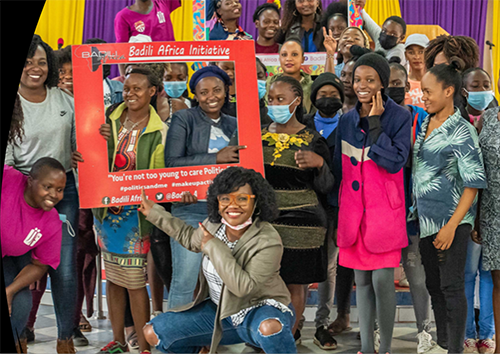Oxfam
Supporting grassroots women’s rights organisations with flexible, core funding and capacity-building support
Women and girls make up the majority of the world’s poorest people. Millions face violence, abuse and unequal treatment and are denied opportunities to learn, earn and lead.
 Oxfam believes that supporting women’s rights organisations (WROs) is one of the best ways to alleviate poverty as these have an in-depth understanding of the daily realities faced by women and their families, and play a crucial role in social development.
Oxfam believes that supporting women’s rights organisations (WROs) is one of the best ways to alleviate poverty as these have an in-depth understanding of the daily realities faced by women and their families, and play a crucial role in social development.
However, with less than 1% of gender-focused aid directed to grassroots WROs and an average yearly income of $30,000 – often tied to strict spending rules – many struggle to survive. So in late 2020 – well before the recent slashing of official aid budgets in the US and UK – Oxfam designed and implemented the first Women’s Rights Fund (WRF) pilot in Kenya and the Occupied Palestinian Territory, before expanding to Lebanon in 2024 and Nepal this year.
The WRF differs from traditional aid projects in that it gives partner organisations multi-year, flexible funding while supporting their sustainability through tailored guidance and mentoring. Partner organisations – none of which have received core funding before – are awarded unrestricted grants of £20,000 a year for three years, plus organisational development support worth around £12,000.
From 2021 to 2024, partner organisations have supported around 60,000 people through emergency aid, support to survivors of violence, legal aid, education, healthcare services and more. In addition, the first cohort of 10 WRF partners in Kenya and Palestine raised US$2m, the equivalent of around $70,000 per organisation per year, and trebled the number of people they serve. One of the partner WROs in Palestine was able to quickly pivot once the war there began, from providing legal aid services to distributing food to displaced people, thanks to the flexibility of the programme.
The WRF now supports nearly 20 WROs in four countries and Oxfam aims to increase this to 70 partners in 10 countries over the next two or three years. Chief executive Halima Begum says that if the programme can be successfully scaled up, it has the potential to fundamentally change the way Oxfam operates as an INGO, and could even catalyse systemic change across the entire sector as the global funding challenges bite.
Richard Hawkes, CEO of British Asian Trust, said Oxfam was driving “genuinely massive change” by sharing power and standing in solidarity with communities of lived experience. “The international development sector has been talking about decolonisation for more than 30 years but hasn’t actually managed to do it. This is far more significant than just this programme, because Oxfam is the biggest beast and if they are leading this radical shake-up then the rest of the sector will have to take notice.”
Shane Ryan, senior adviser to the National Lottery Community Fund, said the testimonials from partners confirm that the fund represents a meaningful shift from traditional, often extractive funding relationships, toward more equitable partnerships. “The influence of the model on other Oxfam programming and external organisations suggests potential for sector-wide change in funding practices.”
CC Reg. no. 202918

